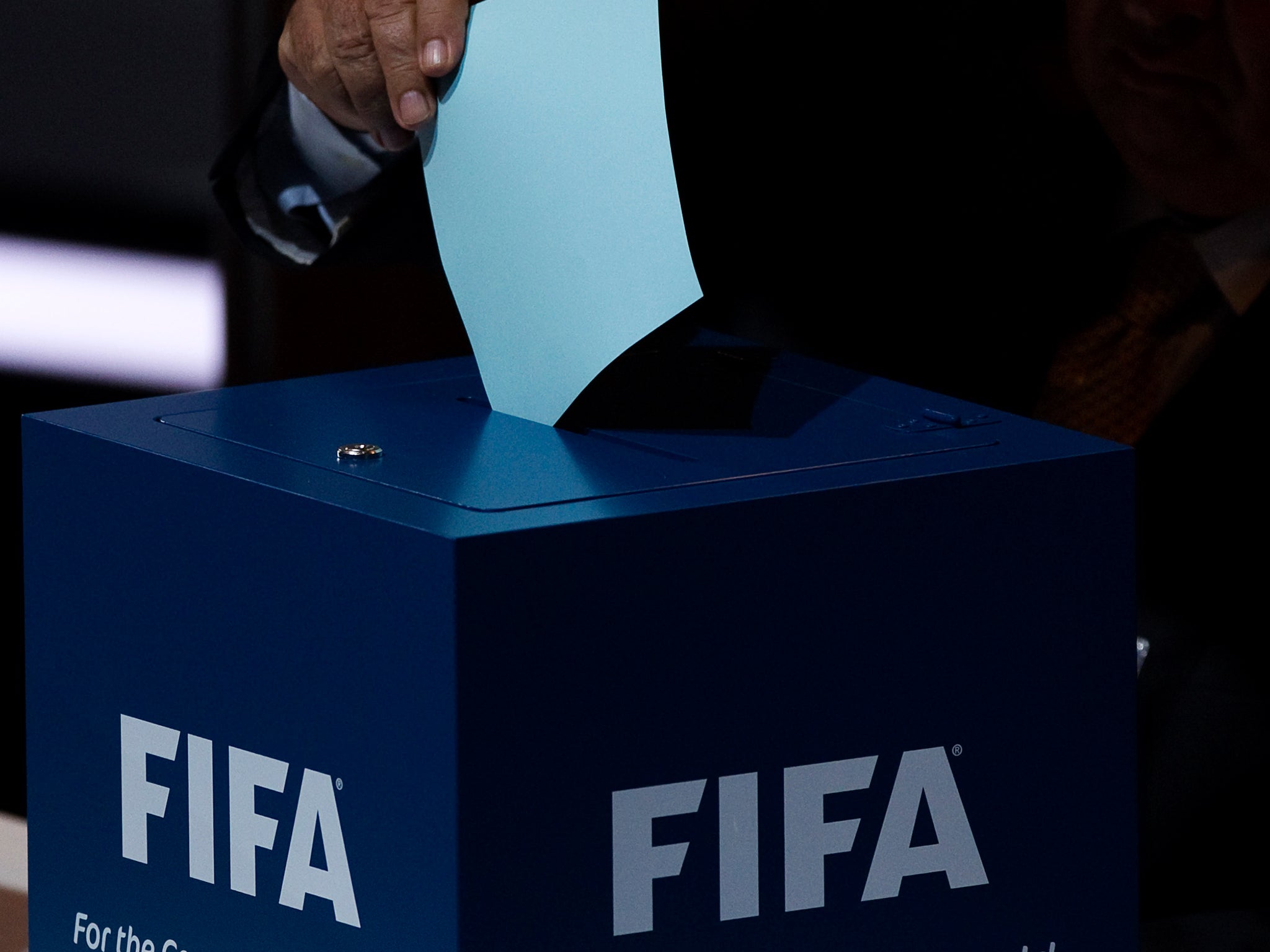Fifa presidential election: Reforms offer chance for change, not the identity of Sepp Blatter's successor
The true impact on world football will be seen in how effectively Fifa transports today's passed reforms into the real world

Your support helps us to tell the story
From reproductive rights to climate change to Big Tech, The Independent is on the ground when the story is developing. Whether it's investigating the financials of Elon Musk's pro-Trump PAC or producing our latest documentary, 'The A Word', which shines a light on the American women fighting for reproductive rights, we know how important it is to parse out the facts from the messaging.
At such a critical moment in US history, we need reporters on the ground. Your donation allows us to keep sending journalists to speak to both sides of the story.
The Independent is trusted by Americans across the entire political spectrum. And unlike many other quality news outlets, we choose not to lock Americans out of our reporting and analysis with paywalls. We believe quality journalism should be available to everyone, paid for by those who can afford it.
Your support makes all the difference.With Fifa set to elect a new leader to herald a brave new era, it remains to be seen if any of the presidential candidates running can offer the change craved so keenly by the masses beyond the corridors of their exhibitionistic Zurich home.
The world football governing body has several interests which it needs to protect, emphasised most acutely by the suggestion, backed at least in part by all candidates, that the World Cup should be expanded from 32 to 40 teams.
Such a pledge guarantees favour with smaller footballing nations, who hold the same electoral power as larger states, with the move likely to bring unprecedented riches and opportunity across the global spectrum.
Sheikh Salman bin Ibrahim al-Khalifa, Gianni Infantino, Prince Ali Bin Al Hussein and Jerome Champagne will learn their fate at some point this evening with all 207 eligible nations currently voting for Sepp Blatter’s successor. Tokyo Sexwale, previously the rank outsider, withdrawn from the running this afternoon at the end of his speech outlining what Fifa must do to go forward.
The glare of tomorrow’s back – and front – pages will be fixed solely on the triumphant candidate but the reform proposals, approved before a single presidential vote had been cast, is the true story of the day in Zurich.
Fifa members passed a package of reforms designed to repair the organisation’s tarnished reputation and safeguard it against the sort of corruption which has threatened its very existence.
201 of the eligible 207 countries elected to vote (Indonesia and Kuwait were suspended) with 179 in favour of the reforms which aim to improve accountability, transparency, diversity and governance matters including term times of elected officials.
Despite opposition from Gonzalo Boye Tuset of the Palestine Football Association, who called for “revolution not evolution” the vote went ahead with the required 50 per cent turnout.
Chiefly among the accepted reforms package is the decision to set fixed terms of three or four years for presidents while the benchmark has been set for full disclosure of the payment structure at Fifa. The executive committee will also undergo a transformation of sorts with it expected to now be replaced by a 36-member council designed to set global policies and include at least one female representative.
Before the previous election in the summer of 2015, arrests were made at the request of the United States Department of Justice. Many remain under investigation by the Federal Bureau of Investigation, in co-ordination with Swiss authorities, over corruption allegedly involving more than $150m (£98m) worth of bribes dating back 24 years.
While the manifestos vary greatly on some topics, yet not so much on others, the true impact on world football will be seen in how effectively Fifa transports these reforms from press releases and into the real world.
Join our commenting forum
Join thought-provoking conversations, follow other Independent readers and see their replies
Comments